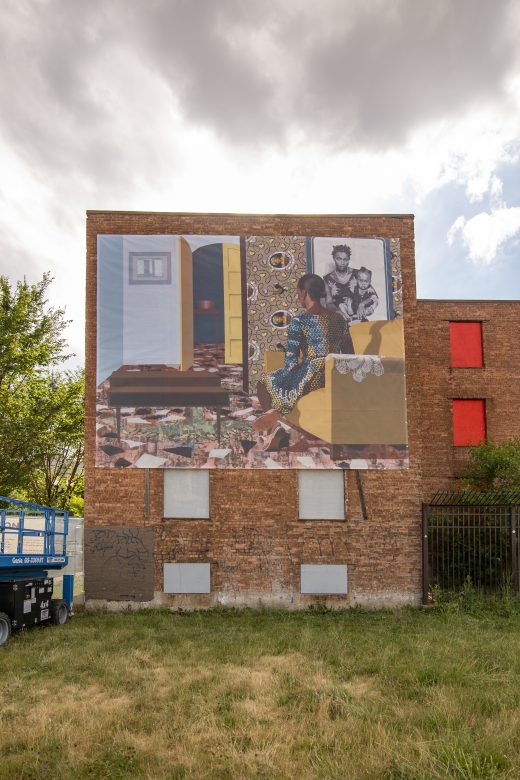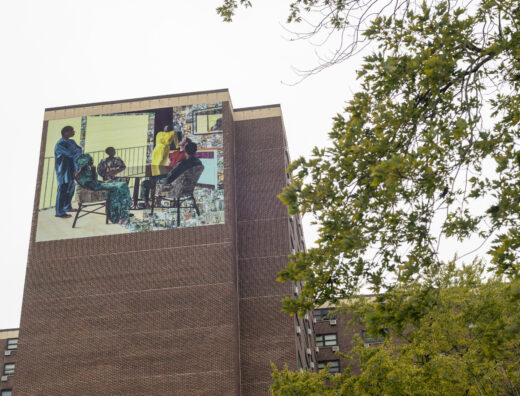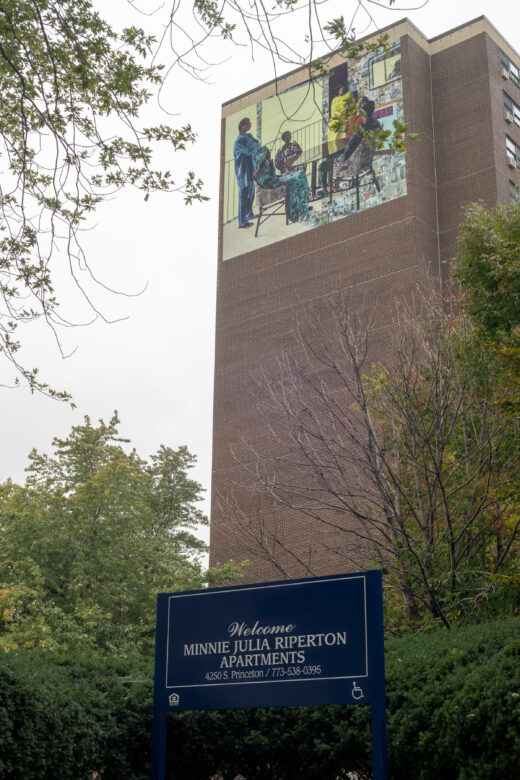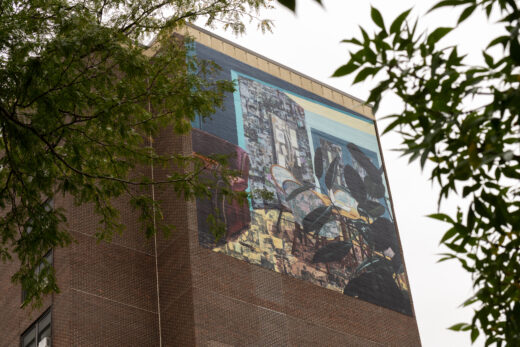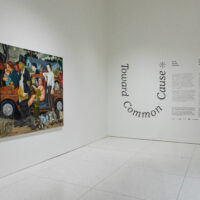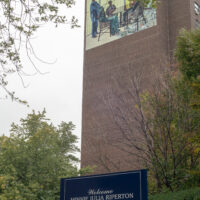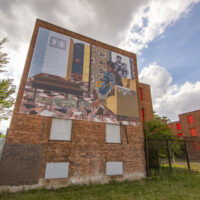Njideka Akunyili Crosby
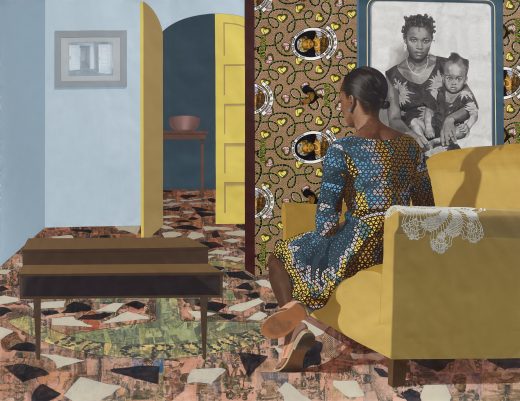
Njideka Akunyili Crosby hopes that her artwork provokes “people to feel almost that they are walking by a scene into someone else’s life,” and often, this life is her own.
Akunyili Crosby was born in the Nigerian city of Enugu, moved to Lagos at age ten, and immigrated to the United States with her sister at 16 when her mother won the US green card lottery. Akunyili Crosby’s practice is autobiographical and compellingly represents her diasporic identity; images of her childhood in small-town Enugu, the significantly more metropolitan Lagos, and her 20-year life and acclaimed career in the US comprise her strikingly layered images.
Akunyili Crosby’s pictures are suffused with notions of domesticity and interiority; she presents viewers with familiar scenes of life, colored by private moments of her own. These images feature photocopied transfers of family photographs and Nigerian newspapers and magazines, acrylic paint, and marble dust. Her work is often regarded as mixed-media painting or collage, humble terms to describe an immensely varied process which recalls the likes of Kerry James Marshall or Robert Rauschenberg. While her process is distinctly complex, her human subjects typically engage in mundane activities; some sit pensively at the dinner table alone, while others tenderly caress one another, as in intimate depictions of Akunyili Crosby and her husband.
While the artist uses her practice to critically reflect on her Nigerian-American identity, probing both ends of this hyphenated label on their own terms, Akunyili Crosby’s work also provides viewers with a level of accessibility that inspires empathy. Color and media blend in her works, and just as often resist one another with sharply contrasting hues; the presentation of her Blackness next to her husband’s whiteness, for instance, highlights the complexities of their interracial marriage and contrasting American experiences. As such, Akunyili Crosby’s art represents a common refrain of the diasporic identity: the challenge of straddling two complicated places—a native home and an adopted home—while resisting stultifying labels. Yet still, Akunyili Crosby’s Brooklyn, Lagos, and Los Angeles complement one another; sometimes, her faded family photography makes up a carpet or the wallpaper in an American apartment.
Expressing an African identity in the US and making a name for oneself in the art world as a Black woman, as Akunyili Crosby surely has, poses dilemmas that may resonate with many—those who feel that they do not entirely conform to one place, nor embody an identity they are expected to perform. Her art is accordingly lush, by virtue of its diversity of media and circumstance, and in the manner that her imagination and vulnerability bleed into one another. Accordingly, Akunyili Crosby’s images are instances of the perplexity of belonging and foreignness, how disparate lives and lands can be imposed onto one another to create a new, cohesive image. The artist continually encourages, and maybe even demands, the dialogue between it all.
